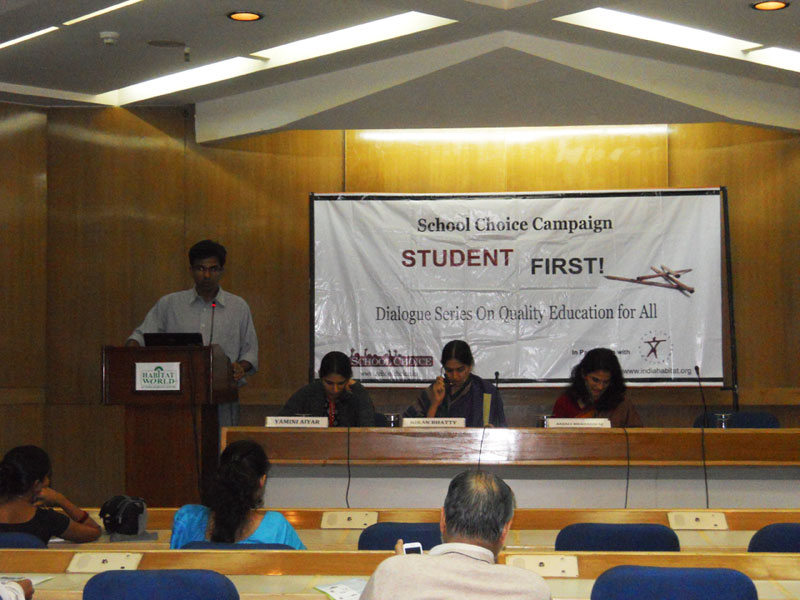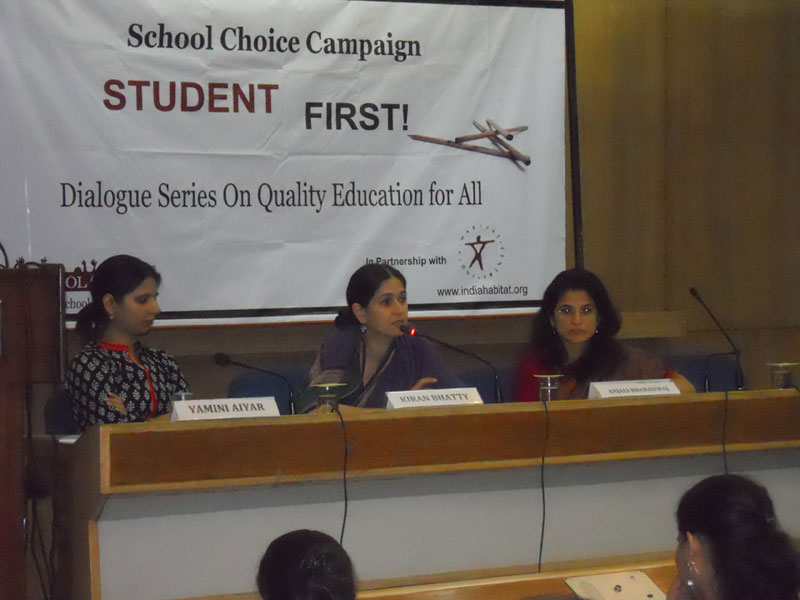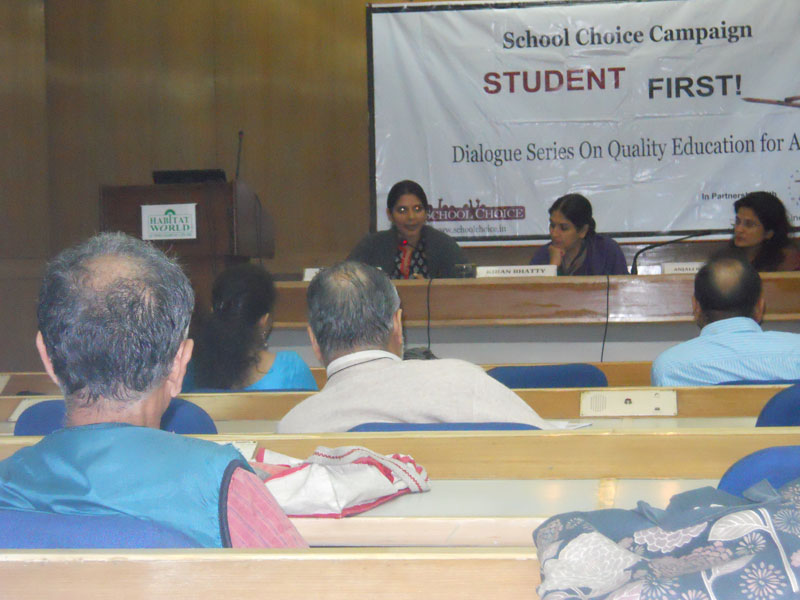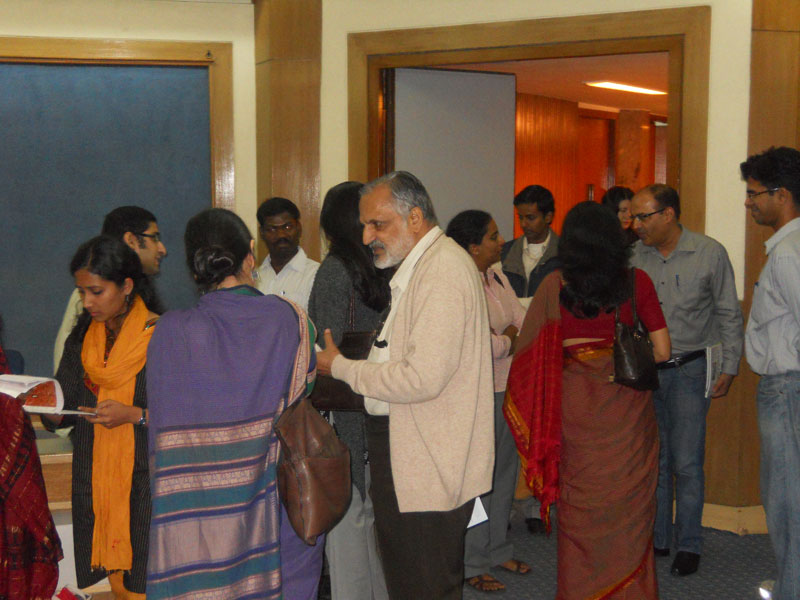 |
|
|||||||||||||
|
||||||||||||||||||||||||||
| Home > Student First! Dialogue Series November 2010 DialoguePanel Discussion on Social Audit in School Education
An open forum discussion was organised on Social Audit in School Education on 18 November at the India Habitat Centre. Ms Kiran Bhatty, National Coordinator, Right to Education, NCPCR and Ms Anjali Bharadwaj, Founder and Director, Satark Nagrik Sangathan were the panellists of the program. Chairing the discussion was Ms Yamini Aiyar, Director, Accountability Initiative, Centre for Policy Research. Ms Kiran Bhatty spoke about how the NCPCR has an opportunity under the RTE to put in place a system of social accountability for education. She stressed on the need to develop social audit which is a tool for social accountability in the field of education. She stated that for social audit to work three pre-conditions are necessary:
In the last decade there has been an increase in public participation in governance but the response of the government has been slack. Social accountability should not lead to a situation where the government abdicates its responsibilities,” said Ms Bhatty emphasizing that we should not lose sight of what is most important to parents/community insofar as schools are concerned which is the quality of education imparted there. While conducting social audits the factor of quality must be kept in mind along with infrastructural requirements. Ms Anjali Bharadwaj spoke on the experience of her organisation Satark Nagrik Sangathan with social audits especially with respect of bringing in efficiency in the public distribution system. In the context of RTE she stated that there is scope for social audits in terms of pupil-teacher ratios, 25% quota, buildings, toilets etc. She highlighted the role of the using the currently under-used section 4 of the RTI Act to make data like teacher attendance available. She said, “For social audits to work it is essential that the grievances of the people raised through the process are addressed. If this is not done, people will lose faith in the whole process.” The chair for the session Yamini Aiyar spoke about the PAISA Report brought out by Accountability Initiative. She spoke about how the Report was conceived because information about the flow of SSA funds to individual schools was difficult to track. On tracking such fund flow it was observed that the funds are often received late and not utilised efficiently. She stressed on the need to link information with the planning process. Several queries, experiences and comments were shared and discussed by participants during the open forum. |
||||||||||||||||||||||||||||
SUPPORT US |
||||||||
|
||||||||
EVENTS |
||||||||
|
||||||||















